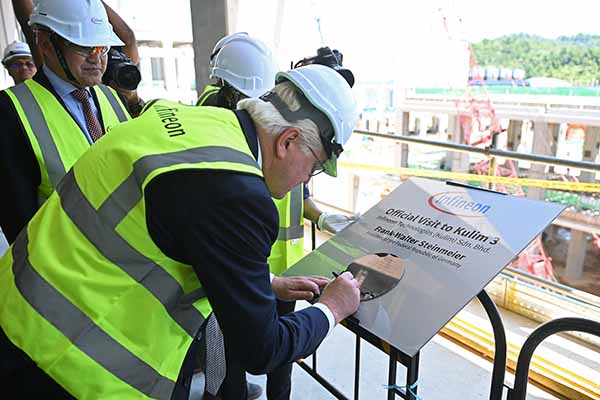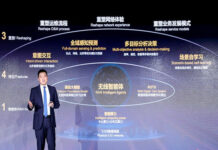Munich, Kulim – German President Frank-Walter Steinmeier visited Infineon Technologies AG in Kulim, Malaysia, as part of his trip to Asia. The visit focused on Infineon’s contribution to enabling the global energy transition with energy-saving semiconductor solutions, as well as by investing in solutions that further reduce the CO 2 footprint in its chip manufacturing.
Infineon is currently building a new plant for two billion euros that will focus on so-called compound semiconductors. These semiconductors are based on new materials like silicon carbide and gallium nitrite that enable further energy-efficiency increases. Energy-saving semiconductor solutions play a central role in the energy transition. Among other things, these solutions are used in wind turbines, solar power systems, e-vehicles and charging infrastructures. Kulim 3 will be ready for equipment in summer 2024 and will create 900 jobs. Infineon confirmed that construction work is on schedule.

During Steinmeier’s visit, Infineon presented its investment in expanding the exhaust air purification system at the Kulim site. Avoiding CO 2 emissions is a clear priority for Infineon in implementing its climate strategy. Modern exhaust-air purification systems offer the greatest leverage in this regard. The upgrade in Kulim is expected to result in an approximately eight percent reduction of global direct site-related emissions (Scope 1) by the end of the 2023 fiscal year, compared to the previous year. A planned new exhaust-air purification system in Austin, USA, will lead to further savings.
The company has also set the goal of operating 100 percent of its plants in Malaysia with green electricity in the future and is in close exchange with local suppliers and the government to this end. The initiative will help further improve Infineon’s positive climate contribution. Today, the company’s energy-efficient solutions help save 33 times the amount of CO 2 emitted during their production.
“Infineon is fully aligned with the trends of decarbonization and digitalization,” said C.S. Chua, President and Managing Director of Infineon Asia Pacific. “The growing demand for renewable energy, e-vehicles as well as energy-efficient applications will lead to a strong increase in the demand for power semiconductors. Our investments in Kulim and beyond are laying the foundation for being able to serve this growing need as well.”















